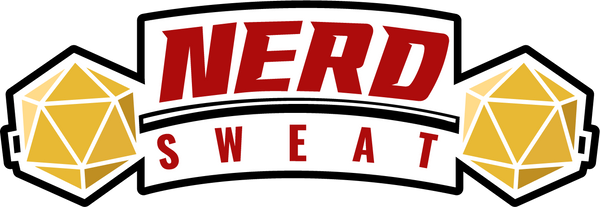
Storytelling Skills for Students: How RPGs Encourage Creativity in Education
Imagine a classroom where students aren't just sitting and absorbing information but are actively creating stories, building worlds, and stepping into the shoes of characters they've dreamed up. Welcome to the world of tabletop role-playing games (TTRPGs), where creativity knows no bounds and storytelling becomes a powerful tool for education. Whether it's designing complex characters, crafting vivid backstories, or navigating moral dilemmas, RPGs like Dungeons & Dragons (D&D) offer students an engaging way to develop their storytelling skills in a collaborative environment.
Here’s why tabletop RPGs are an untapped goldmine for encouraging creativity and enhancing writing and storytelling in education—and how you can bring this dynamic tool to life in the classroom.
The Power of Storytelling in RPGs
At its heart, every RPG is a shared story. Players control characters who explore a world created by the Dungeon Master (DM) or Game Master (GM), solving problems, making decisions, and experiencing consequences. This unique collaborative narrative demands creativity, as players shape the plot in real time.
Example: A student playing a D&D campaign might create a rogue who grew up on the streets, learning to steal to survive. During the campaign, the character encounters a wealthy merchant who looks eerily like the rogue’s estranged sibling. Now the student has to decide: confront the merchant and risk rejection, or keep the secret and continue their life in the shadows?
This type of storytelling encourages students to think deeply about motivations, relationships, and the consequences of their actions—critical elements of any compelling narrative.
How RPGs Boost Creativity
-
World-Building Exercises:
Students work with the DM to create worlds brimming with unique cultures, histories, and conflicts. For example, designing a kingdom ruled by an eccentric monarch obsessed with riddles challenges students to think outside the box and create consistent lore. -
Character Development:
Students invent characters with detailed backstories, personalities, and goals. A wizard who’s terrified of fire due to a tragic accident in their past provides rich storytelling potential while teaching students how to weave flaws and growth into a narrative arc. -
Improvisation and Quick Thinking:
When the unexpected happens—like an NPC betraying the party or a dragon appearing unexpectedly—players must adapt and improvise. This sharpens creative problem-solving skills, teaching students how to pivot and think on their feet.
Incorporating RPGs in the Classroom
Start Small: Introduce students to simple RPG systems like No Thank You, Evil! or Fate Core if D&D feels too complex. These systems focus on storytelling without overwhelming players with rules.
Tie It to Curriculum: Use RPGs to enhance existing subjects. For history, students could role-play as diplomats in ancient Rome. For English, they could write journal entries or narratives from their characters’ perspectives.
Host Creative Writing Challenges: After sessions, ask students to write short stories or journal entries about their character’s experiences. This connects gameplay to traditional writing skills.
Resources for Educators
- Dungeons & Dragons Starter Set: Perfect for beginners, this set includes simplified rules and a pre-written adventure. (Starter Set)
- Critical Core: An RPG system specifically designed for social and emotional learning, ideal for classrooms. (https://criticalcore.org/)
- TTRPG Kids: A blog dedicated to RPGs for younger audiences, offering tips and resources for teachers and parents. (https://www.ttrpgkids.com/)
The Impact of Storytelling Through RPGs
RPGs teach students that every story—like every character—has depth, nuance, and potential. By engaging in collaborative storytelling, they learn to listen, adapt, and contribute in meaningful ways. They explore emotions, confront challenges, and build narratives that are entirely their own.
In the classroom or at the gaming table, RPGs are more than just a game—they’re a gateway to creativity and personal growth. So, why not roll the dice and let your students’ imaginations take flight? Their next great story is waiting to be told.
Final Thought:
Tabletop RPGs remind us that storytelling isn’t just about words on a page—it’s about shared experiences, bold decisions, and the courage to imagine something new. And isn’t that the heart of creativity?
